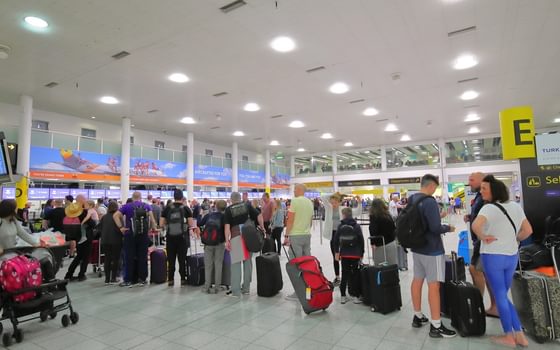Workers outside of London saw hours contract twice as fast as those in the capital during Covid-19
At the peak of the crisis, a total of 200 million working hours each week were lost across the UK economy
24 September 2020
The economic fallout from Covid-19 is likely to significantly increase regional inequalities, according to new analysis by the New Economics Foundation (NEF) published today. The analysis, using data from the ONS Labour Force Survey, shows that regional labour markets contracted more than twice as fast compared with London during the pandemic.
The analysis suggests that total hours worked in London between April and June 2020 fell by 12% since the same period in 2019, compared with 29% in the East of England, 22% in the South West, 21% across the East and West Midlands and 18% in the North West, Yorkshire and Humber.
The rate of furlough has been reasonably consistent across the UK’s nations and regions, leading many to assume the labour market impacts have been fairly uniform too. But new analysis by NEF, which looked at more detailed data on the number and pattern of hours actually worked across the UK, shows this was not the case. The number of hours worked in many regional economies fell more than twice as fast compared with London.
Differences in the balance of industries across regions, differences in contract types typically found across regions and pre-existing socio-economic inequalities will have all likely contributed to the variable impact of Covid-19 across UK labour markets. But new evidence suggests that furloughed workers outside London were typically working longer hours prior to the crisis than those in the capital. It is also likely that more hours were lost outside London from workers falling through the cracks, for example from self-employed workers or workers on fixed-term contracts that were missed by the Job Retention Scheme.
The analysis also showed that at the peak of lockdown (April to June 2020) the total hours worked across the UK economy fell by around 19% compared with the same three months in 2019. This equates to around 200 million in lost working hours each week. Within this figure, the analysis further showed that 150 million hours (75%) were accounted for by furloughed workers. This leaves 50 million hours (25%) that were likely lost from a mixture of self-employment and employees losing work or hours while missing out on the furlough scheme.
The spatial differences in hours lost also suggest that the impact of ending the Job Retention Scheme in October could lead to a far great economic hit to regions outside London, further entrenching pre-existing regional inequalities.
NEF joins TUC in calling for a proper plan to create and protect jobs beyond October to prevent mass unemployment and deeper regional inequalities. This plan must have three key elements:
- Create: a jobs-focused fiscal stimulus to create the low carbon jobs of the future. NEF estimates that at least 400,000 green jobs could be created by 2021 with a £28.3 billion green investment package. The TUC estimates that 600,000 jobs could be created across the public sector to plug current shortages across health, social care, education and national and local government.
- Protect: support for businesses – allowing them to bring people back to work for a shorter working week with government subsidising 70% of wages for hours not worked, and employers making up the difference to ensure all workers receive 80% of pay for unworked hours, up to £2,500 a month. Similar support must also be put in place for the self-employed, including those who have missed out from previous schemes. Support in both cases would be targeted at those businesses who can show that their trading continues to be impacted by coronavirus restrictions.
- Reskill: support workers to transition by offering those on shorter hours access to funded training to reskill in non-working hours. Funded training should also be made available to the unemployed, with everyone receiving a minimum income guarantee while they develop new skills.
Frances O’Grady, General Secretary of the TUC, said:
“The government must fast-track a plan to stop mass unemployment. If the chancellor does not act swiftly, the damage to communities across the UK will be huge. And it could take decades to rebuild our industry.
“The TUC has put a plan on the table for job protection and upskilling. It’s targeted and with strings attached — not a free lunch, but a lifeline. And it’s how we can prevent this becoming a much deeper, longer crisis. We urge the chancellor to sit down again with business and unions to agree a support plan in the national interest.”
Miatta Fahnbulleh, Chief Executive at New Economics Foundation said:
“As this pandemic continues to unfold it is clear that the Government needs to offer support to people beyond the furlough scheme. If we want to Build Back Better from Covid-19 in a way that “levels up” we need a proper plan that protects job, creates quality low-carbon jobs and reskill workers to take up the jobs of the future.
“If we are to avoid mass unemployment that will scar communities across the country for years to come and entrench regional inequalities, the Government needs to act now. If it gets this right, it will not only save jobs but enable a just transition for many workers from sectors that are declining to the sectors of the future.”
Alex Chapman, Researcher at the New Economics Foundation said:
“This is a complex crisis, with unequal impacts across regions, sectors and communities. But the story emerging from our analysis is simple and all too familiar. Two groups stand to lose most if the government fails to design a comprehensive income safety net for the next phase of this crisis, those in regions outside London, and those on low incomes and in insecure work who have fallen through the cracks in the government’s schemes.
“NEF’s new analysis documents millions of lost working hours, with a particularly heavy burden in places like the Midlands, and the East. As we face not only a health and economic crisis, but also accelerating climate breakdown we must seize this opportunity to ensure that lost hours are not wasted hours. Our proposed jobs plan would place re-skilling and upskilling alongside job protection and low-carbon job creation, and build a recovery on the back of good quality, well-paid work in green industries.”
Hannah Martin, Co-Executive Director of Green New Deal UK and the Build Back Better campaign:
“Just three months ago Boris Johnson said that he would create a ‘New Deal’ for Britain, but now people up and down this country stand at a cliff edge unsure of how they will provide for their families.
“Coronavirus is clearly exacerbating regional inequalities already and if the government is serious about ‘levelling up’ it should invest in a green recovery and immediately develop a plan for good green jobs in the regions that need them the most.”
Contact
Sofie Jenkinson, sofie.jenkinson@neweconomics.org, 07981023031
Notes to editors
The full analysis can be found at: https://neweconomics.org/2020/09/furlough-where-did-the-hours-go
Change, in absolute terms, in total actual hours worked in main and second job between Apr-Jun 2020 and Apr-Jun 2019
Region of place of work |
Hours lost Year-on-Year (Apr-Jun ‘ 19 to Apr-Jun ’20) rounded to nearest 100,000 |
North East |
-5,600,000 |
Northern Ireland |
-5,900,000 |
Wales |
-6,900,000 |
Yorkshire and Humberside |
-14,700,000 |
East Midlands |
-15,000,000 |
Scotland |
-17,400,000 |
West Midlands |
-18,100,000 |
South West |
-19,000,000 |
North West |
-20,200,000 |
London |
-21,100,000 |
South East |
-24,500,000 |
East of England |
-27,000,000 |
Source: NEF analysis of ONS Labour Force Survey Data






